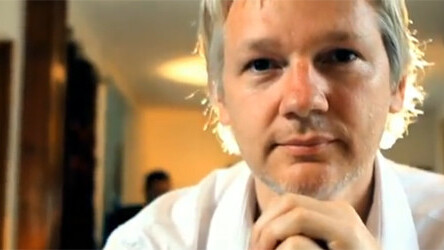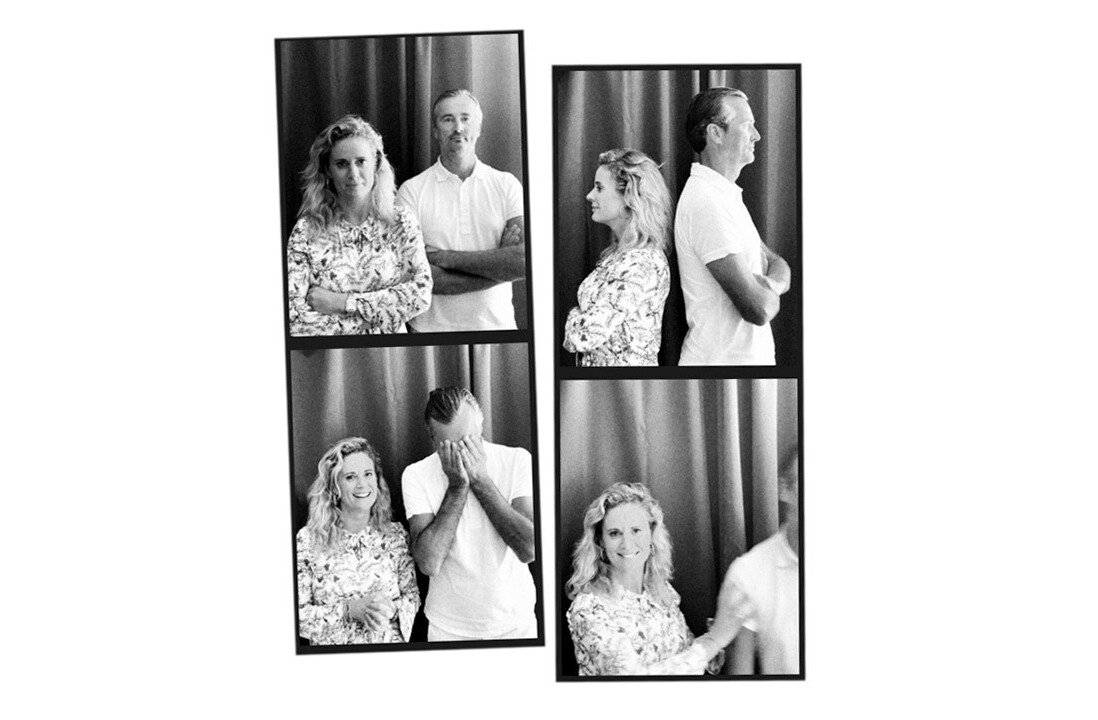
As you may have heard, Julian Assange, editor of Wikileaks, has a TV show. There are four episodes available on the web now, so it’s time to take a look at what this is all about.
A quick glance back on interviews and statements from Assange about the show point to the idea that he is bored being under house arrest and needed something to do. Making a professional television show might not occur to most people in this situation, but then Assange is not quite most people and this is not a regular TV show.
The World Tomorrow with Julian Assange is promoted in some regions as “The Julian Assange Show”. Having a show named after yourself says quite a bit about the direction of the program. David Frost and Michael Parkinson earned a reputation for themselves as interviewers over time and had television programs bear their name but Assange is not of this field, he’s known for releasing sensitive material and pissing off governments, so it’s no surprise that the topics and guests have something in common with the host.
It’s already been said in many reviews that Assange is an awkward interviewer. This is hardly surprising, his relationship with the media in general has been one of defence and never one where he can practice the skills of asking questions in a fluid manner. I can’t think of anyone who did not start out by reading their questions in an interview situation until they became more practised.
So yes, the questioning is halting and the queries are read out from paper. One thing that improves over time though is the method of listening and reacting to a guest’s responses, which makes a conversation flow, rather than making a bullet point interrogation which is hard to watch.
In a separate video about the series, Assange says that he now understands the constraints of the interview process. This is a refreshing point to hear. It’s logical that all broadcasters have an agenda, that television and radio programs require editing to fit a time slot. Because of these things, the raw material that Wikilieaks may be able to distribute, is not a possibility for scheduling and distribution in mainstream media. That’s the way TV works.
One thing Assange does that other broadcasters tend to avoid though, is the release of full materials in the form of a transcript. There are notes available for each episode, some of which were made from hours of recordings. It’s an interesting process and one where guests are hopefully made aware that what they may say will be released in full. These notes in themselves are pretty interesting as they show the relationship between the participants more clearly than the broadcast edits manage to.
Assange is not well known for tolerating criticism. Already mainstream press reports have released early reviews and in response the Wikileaks editor has produced a list of pre-formatted tweets that supporters can distribute to counter the critics. It’s not something you might see traditional broadcasters doing for sure, but it does show a certain understanding of the web that mainstream media may yet have to grasp; the management of negative SEO and online reputation balance.
Common ground
 Assange’s guests are naturally related to his own work. There would be little point in having the Wikileaks editor as a host if the guests were a random choice. So far, the head of Hezbollah, Hassan Nasrallah and the new President of Tunisia, Moncef Marzouki have appeared in interview. Discussions with Slovenian philospher, Slavoj Zizek and American conservative writer David Horowitz cover freedom and war while Nabeel Rajab, Bahraini human rights activist and Alaa Adb El Fattah, Egyptian software developer and political activist, talk about detention and protest in relation to the Arab Spring movement.
Assange’s guests are naturally related to his own work. There would be little point in having the Wikileaks editor as a host if the guests were a random choice. So far, the head of Hezbollah, Hassan Nasrallah and the new President of Tunisia, Moncef Marzouki have appeared in interview. Discussions with Slovenian philospher, Slavoj Zizek and American conservative writer David Horowitz cover freedom and war while Nabeel Rajab, Bahraini human rights activist and Alaa Adb El Fattah, Egyptian software developer and political activist, talk about detention and protest in relation to the Arab Spring movement.
These guests seem to be people who Assange can identify with; detention, imprisonment and loss of liberty are repeated themes. The ability to speak with a leader who has not appeared in media for six years also shows that Assange has a quality that attracts voices that might not ordinarily be exposed on screen. That indicator seems to be one of trust. So either Assange is unlikely to ask very challenging questions or there is a kinship felt between interviewer and interviewee.
There are moments in each interview where Assange’s questions appear to be a little naive. Those who follow world affairs will not be surprised to hear about allegiances between leaders in the Middle East as it sees further bloodshed and uprisings. But, in a world of rolling news, with rather knowing and incremental updates, there is something to be said for asking plain questions. There are plenty of experts who interview world leaders, but they can often be accused of asking questions that show more about what they know, than trying to explain a situation to a wider audience.
That said, some of the camaraderie between Assange and his guests is less than inclusive for the audience and a little objectivity might be more appropriate in some cases. The line-up of guests for the rest of the 12-part series is yet to be revealed, whether Assange would put himself in the position of facing some of his harder critics remains to be seen.
For all of Assange’s awkwardness on screen, the production of the series is slick and well done. This is a TV show of course, so the production team is professional. With the availability of higher quality camera and sound equipment to domestic users, there is possibility that programs like this will become more common.
Future Pirate TV
Radio broadcast equipment has been accessible for decades for people to create their own radio stations like Caroline and Atlanta. These stations were often based on boats outside of the legal restrictions of particular territories to address a monopoly of broadcasting or to create programming with political or entertainment content.
As the tools of broadcasting in vision line up with the ability of viewers to stream video on the web, quality broadcasting by figures like Assange may in fact become commonplace. As the proxy wars with sites like Pirate Bay also heat up, the distribution and dissemination of information as quality broadcasting might be something that legislators start to take a closer look at.
The World Tomorrow is available to watch online via the Russia Today TV network. Other stations are starting to pick up on licensing via QuickRoll Productions, apparently owned by Assange and official distributor, Journeyman Pictures. L’Espresso Group for example, is airing the program in Italy.
In making a TV show, Assange grasps the opportunity to promote himself on his own terms, not through the filter of writers or reporters. It’s hardly a surprise that all editorial decisions are made by the man himself too. So are we ready for other contentious figures to broadcast their own shows online when they are not prepared to play by the rules of existing media companies?
If you prefer to take your programming in the way that many of us now supplement mainstream news sources with direct information online, then the idea of pirate programming on Smart TVs looks to be a logical step in the future of broadcast.
There are, of course, countless digital stations and community TV programs already but the nature of the Internet means that many more people can find ways to spread their message. Who would you want to watch on their own TV show? Would the quality and production values affect your choice? Let us know in comments.
Get the TNW newsletter
Get the most important tech news in your inbox each week.




